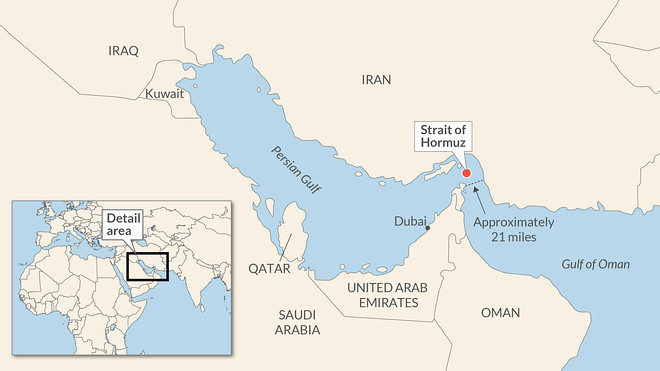Have you ever thought about the impacts of the US-Iran conflict on Nepal?
The Islamic Republic of Iran and the US have been hostile since the advent of the Iranian Revolution which led to dethrone of US-backed Monarch Mohammad Reza Shah Pahlavi and the start of the theocratic rule of Ayatollah Khomeini back in 1979. After the assassination of Major General Qasem Soleimani of Iran’s powerful Quds Force by the US on the outskirts of Baghdad International Airport through air-strikes, Iran has threatened to avenge the death of their leader through military strikes at US bases in the Middle East and also through its proxies like Hezbollah in Lebanon, Shia affiliate groups in Iraq, Houthis in Yemen.
Now the big question is, will there be any impacts on Nepal?
Approximately, 1.5 million Nepali migrant workers are working in gulf countries like Qatar, Saudi-Arabia, Bahrain, UAE (United Arab Emirates), and Kuwait. Nepal received an astounding $4.894 billion worth of remittances from the gulf countries which accounted for 16.5% of its GDP. A new conflict in already a war-torn region may lead to a sharp decline in remittances along with a huge influx of migrant workers back to Nepal. Political and Economic misery will be one of the possible repercussions in Nepal. According to Nepal Oil Corporation, Nepal imported around Rs. 216.42 billion of fuel in the fiscal year 2018-19. More than one-sixth of the world’s oil and about one-third of LNG (Liquified Natural Gas) passes through the narrow Strait of Hormuz which is controlled by Iran.

Disruption of free passage will skyrocket the price of oil and gas. According to JP Morgan's estimate, 6 months of the blockade will hike the price from around 70 USD to more than 150 USD per barrel of oil. It will cripple Nepal’s import-based economy due to fuel shortages and costlier petroleum prices. This will also hamper global economic growth resulting in a significant decrease in the amount of FDI (Foreign Direct Investment) which was $161m in 2018. Visit Nepal 2020 will also be more or less affected due to Air space safety, a decline in spending capacity, and travel insecurity amongst tourists. As the majority of destinations served by Nepali international airlines are in the middle east the decrease in passenger flow will push the airlines to bankruptcy. Nepal’s real estate market which at present is driven by the influx of remittance is bound to collapse which in turn can create a ripple effect leading to the collapse of the banking sector and eventually lead to an economic depression in which the country is woefully underprepared to handle.
Financial Aid and commitment to Nepal will significantly decrease which will even cripple our economy and development projects. Aspirant Nepali workers will go to work for US military contractors like in the Iraq war sending much-needed cash to home at the expense of human cost. Allies of the US including the United Kingdom will be dragged into war So, the UK army of Nepali origin will get affected as the conflict happens. South Asian economy especially, India will be hit hard due to the dependence on oil and remittances from the gulf which in turn also impacts Nepal’s economy on multiple fronts.
On the political front, a sudden influx of immigrants recently evicted from their jobs paired with an already high unemployment number can act as fuel on the brewing dissatisfaction towards the government. As seen in the world multiple times over including our own nation, a few decades back an increasing unemployed population, a shrinking economy, and increasing dissatisfaction over the government is a recipe for internal conflicts and given the country’s geographical location, an ideal playground for proxy wars.